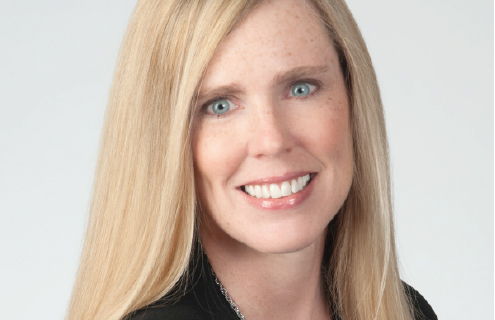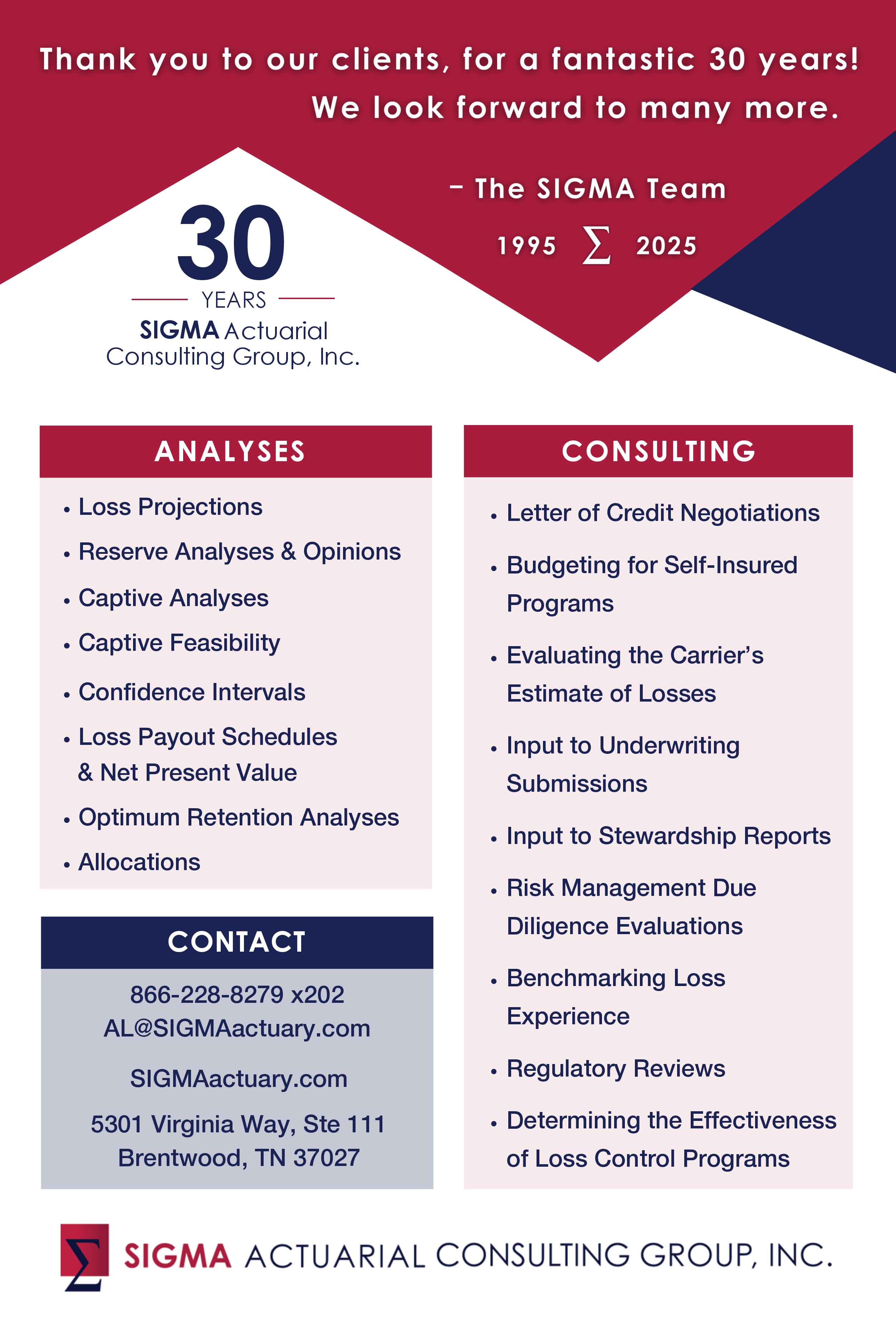GCIA
With a new captive insurance bill all but signed into law and a proactive approach to regulation, Georgia is set to throw its hat in the ring with the industry’s ‘gold standard’ players, according to the GCIA’s Alana Mueller
What prompted Georgia to update its captive insurance law? Is there any pressure on the industry now to succeed as a result?
Back in the summer of 2014, a group of people who all had an interest in the captive insurance industry within the US state of Georgia came together in order to revive the Georgia Captive Insurance Association. These people were mainly the service providers that operated in the state’s captive insurance industry already, such as certified public accountants, attorneys, actuaries, captive managers, investment advisors and insurance brokers. Although the association has been around for some time, in the last five years or so there has been very little activity.
This group had already been meeting quarterly on an informal basis in order to network and share knowledge, so the transition to begin focusing on the association was an easy one. We elected a board and officers with the primary goal of updating the state’s captive insurance laws, thus providing Georgia-based businesses with a local, home-state option to domicile their captive.
Georgia has many companies that either currently have a captive or are interested in forming one. As many of your readers will know, 90 percent of Fortune 1,000 companies have captives. Atlanta alone plays host to a lot of these great businesses that probably already have captives, but, due to the current captive insurance law in Georgia, have not domiciled them here. Most of them have been domiciling their captives in states with more favourable laws that have been developed specifically for regulating the captive insurance industry.
The Georgia laws were more tailored to traditional insurance companies and, although we’ve had a captive insurance law since 1988, it hasn’t really been updated since. As a result, only a few captives are currently domiciled here.
This is why we are so excited about the passage of HB 552. The association worked in conjunction with the state’s insurance department to draft and lobby the bill, which has been passed in the legislature and is currently awaiting the signature of state governor Nathan Deal.
I don’t think there is any pressure on the industry, at this point, to succeed. I think the passage of this bill has opened the door for Georgia businesses to domicile their captives here. It also allows us to retain business that would most likely be lost to states with more favourable captive insurance laws.
Does the update pave the way for new vehicles as well as new business?
At present, we do not have a great deal of captives licensed in Georgia—the Georgia Department of Insurance shows that there are only nine captives currently active in the state. HB 552 really focuses on risk retention groups, and pure, association and industrial insured captives. Those are really the only options available at this point, but this is not the end to what our association has planned.
We have already drafted HB 703, which we will be lobbying for in the next legislative session. This bill includes provisions for protected cell captives, special purpose financial captives and a few other changes designed to bring the Georgia law up to par with some of the more cutting-edge captive domiciles.
Is there any worry of a ‘race to the bottom’ for more fledgling states in terms of capital requirements and premium taxes?
While I can’t speak for any other states, I think the changes in the Georgia captive laws are necessary for it to legitimately compete in this space. We want to position Georgia to be competitive with some of the other ‘gold standard’ captive insurance domiciles. The Georgia captive insurance law has not been updated in any material way since it was originally written—at that time the captive industry was not nearly what it has become today. We looked at the captive laws of many other states when we drafted this bill in order to make sure that our law was in line with what the front-runners are doing.
How much support does Georgia’s captive industry receive from the government? Is it an important factor in its growth?
The association is coming back together and our initial focus is on updating the capital insurance law, but once that is taken care of, the association plans to continuously work with the department to keep the laws current and offer other types of services to its members such as networking and educational opportunities.
We are also beginning to work with the Georgia Department of Insurance to assist with updating their application process. With the passage of this new law, we are hopeful that companies will soon be applying to domicile or re-domicile their captives in the state, so the association wants to assist the department in streamlining the formation and regulation processes.
The department has been very helpful in updating of the Georgia captive insurance law, and overall, we have gotten the sense that everyone is supportive of the bill. It seems that everyone can see the potential benefits in terms of bringing more business to Georgia and allowing companies headquartered here to domicile their captives locally.
Finally, where do you see Georgia’s captive industry going in the next 12 to 18 months?
We are very hopeful that we will see growth in the future thanks to the changes in the captive insurance law. HB 552 provides for a reduction in premium tax rates for captive insurance companies; establishes a maximum premium tax of $100,000; provides for enhanced confidentiality of captive filings; allows captives to participate in pooling arrangements; and permits insuring of controlled, unaffiliated business.
These changes were based on the feedback we received when we asked companies what they would like to see in our captive law in order for them to consider domiciling here. We expect to see new captive formations in the next 12 to 18 months and hopefully captives that already exist will consider re-domiciling to Georgia.
The association will continue to work to update our captive laws and I think HB 552 was a step in the right direction to show the captive community that we are serious, and that we want to make Georgia a captive domicile of choice, especially for businesses that are based here.





